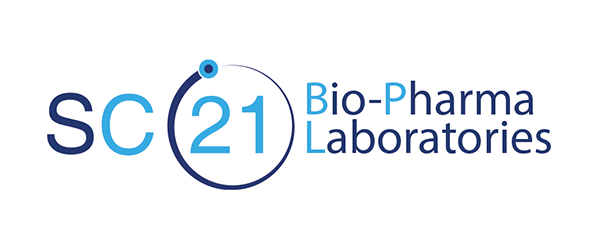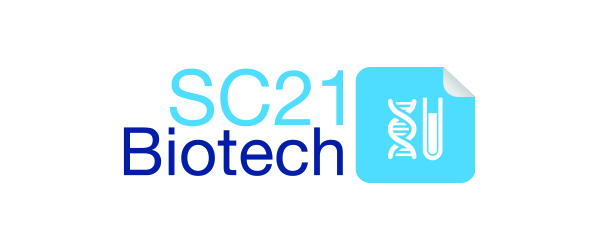Kidney Disease Stem Cell Treatment
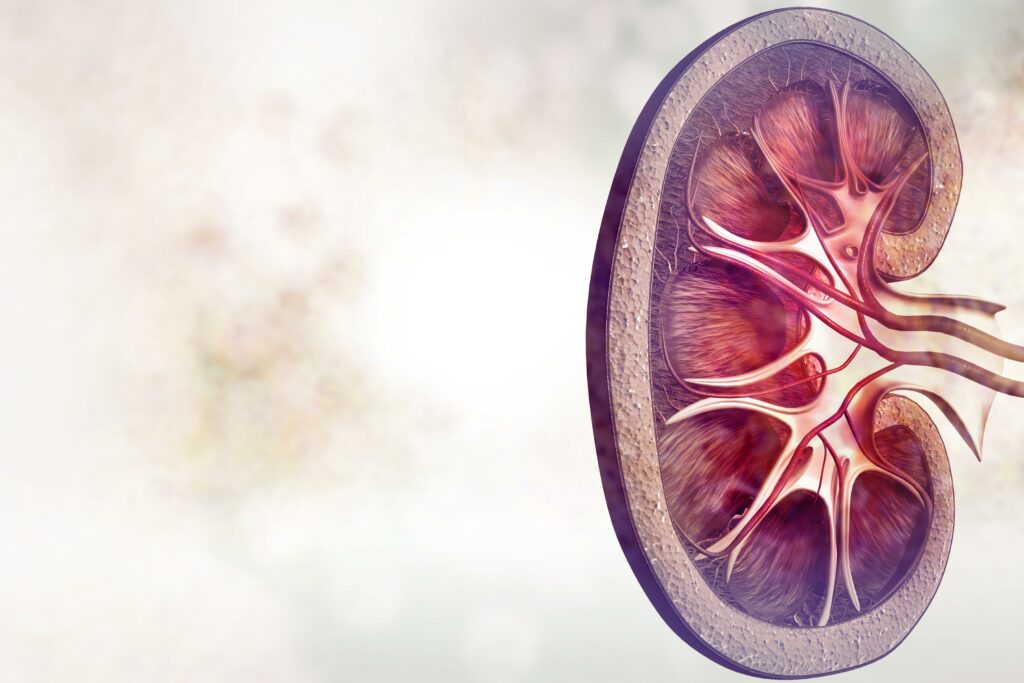
Stem Cell Therapy for Kidney Disease
At StemCells21 we provide access to the cutting edge modern approaches to Kidney Disease Stem Cell Treatment. We focus our treatment to deliver regenerative stem cell therapy, combined with a supportive therapy program to support Kidney rejuvenation.
Stem cell therapy for Kidney promotes a powerful anti-inflammatory response, reducing levels of chronic inflammation within the body to levels that allow healing to occur when it was otherwise inhibited. In terms of Kidney Disease, the levels of inflammation would be high throughout the body. By lowering inflammation markers to normal levels, the body can begin to regenerate the tissue required for normal function.
Risks of Kidney Disease:
Kidney Failure: The primary risk of kidney disease is the progression to kidney failure, also known as end-stage renal disease (ESRD). In this condition, the kidneys lose their ability to function properly, resulting in the need for dialysis or a kidney transplant to sustain life.
Cardiovascular Disease: Kidney disease increases the risk of developing heart problems such as heart attacks, heart failure, and strokes. The kidneys and cardiovascular system are closely interconnected, and kidney dysfunction can lead to high blood pressure (hypertension), fluid retention, and imbalances in electrolytes, all of which contribute to cardiovascular complications.
Anemia: Healthy kidneys produce a hormone called erythropoietin, which stimulates the production of red blood cells. In kidney disease, the production of erythropoietin decreases, leading to anemia. Anemia can cause fatigue, weakness, and shortness of breath.
Mineral and Bone Disorders: Kidneys play a crucial role in maintaining the balance of minerals like calcium and phosphorus in the body. In kidney disease, there may be imbalances, leading to conditions such as weakened bones (osteoporosis) and increased risk of fractures.
Fluid and Electrolyte Imbalance: Kidneys regulate the balance of fluids and electrolytes in the body. When kidneys are damaged, they may not be able to properly excrete excess fluid and electrolytes, resulting in fluid retention, swelling (edema), and imbalances that can affect the functioning of various organs.
Malnutrition and Weight Loss: Advanced kidney disease can lead to poor appetite, altered taste sensations, and malnutrition. As kidney function declines, waste products can accumulate in the blood, leading to a loss of appetite and unintentional weight loss.
Acidosis: Kidneys help maintain the acid-base balance in the body. In kidney disease, the kidneys may lose the ability to excrete excess acids, leading to a condition called metabolic acidosis. Acidosis can cause weakness, confusion, and other complications.
Increased Infection Risk: Kidney disease weakens the immune system, making individuals more susceptible to infections, especially urinary tract infections (UTIs) and kidney infections (pyelonephritis).
Symptoms of Kidney Disease:
Changes in Urination:
- Increased frequency of urination
- Decreased urine output
- Blood in the urine (hematuria)
- Foamy or bubbly urine
- Difficulty or pain during urination
Swelling:
- Swelling in the hands, feet, ankles, or face (edema)
- Puffiness around the eyes, especially in the morning
Fatigue and Weakness:
- Persistent fatigue and general weakness
- Lack of energy and motivation
Fluid and Electrolyte Imbalances:
- Increased thirst
- Dry, itchy skin
- Electrolyte abnormalities (e.g., high potassium levels)
Shortness of Breath:
- Difficulty breathing or shortness of breath not related to exertion
- Build-up of fluid in the lungs (pulmonary edema)
High Blood Pressure:
- Hypertension that is difficult to control with medications
- Headaches, dizziness, or blurred vision
Pain:
- Pain in the lower back (flank pain) or sides
- Kidney pain may be felt as a dull ache or sharp pain
Nausea and Vomiting:
- Persistent nausea and vomiting
- Loss of appetite and weight loss
Changes in Urine Color and Odor:
- Dark-colored urine
- Strong, ammonia-like odor in urine
Cognitive Impairment:
- Difficulty concentrating
- Memory problems
- Mental fog or confusion
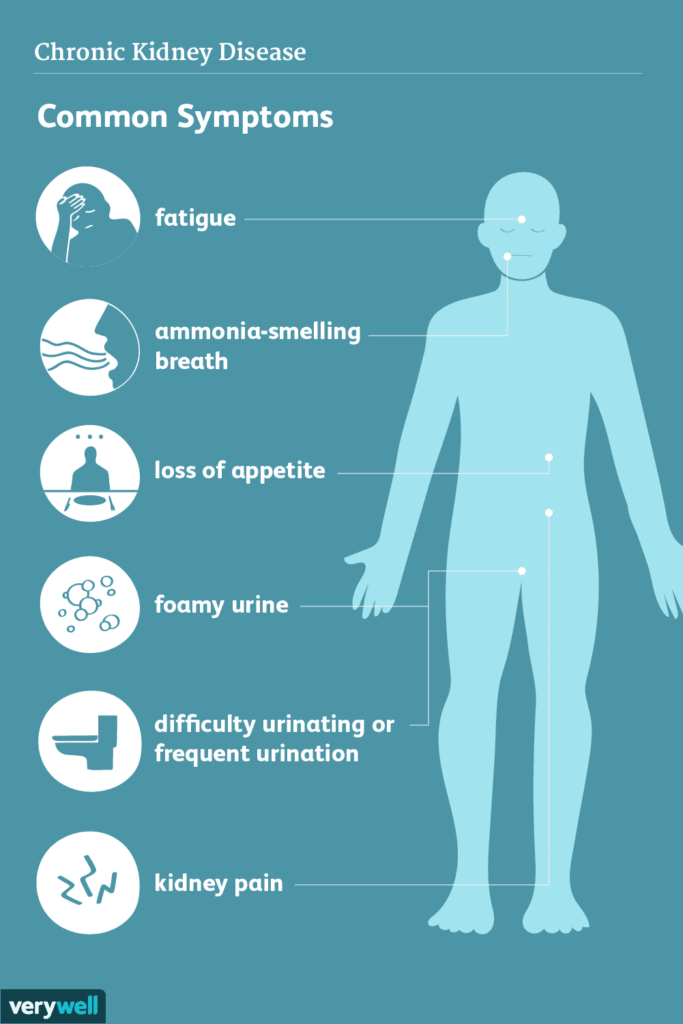
Mesenchymal Stem Cell Treatment Mode of Action and Therapeutic Benefit for Kidney Disease Stem Cell Treatment
Umbilical cord mesenchymal stem cell (UC-MSC) therapy has shown promise as a potential treatment for Kidney Disease and Renal Failure. Here are some of the suggested modes of action and therapeutic benefits seen in our Kidney Disease stem cell treatments using Mesenchymal Stem Cells:
Mode of Action and Therapeutic Benefits:
Anti-inflammatory Effects: MSCs possess anti-inflammatory properties and can modulate the immune response. They release various anti-inflammatory molecules that can reduce inflammation in the kidney, which is a common feature in many kidney diseases. This anti-inflammatory effect may help to protect kidney cells from further damage.
Promotion of Tissue Repair and Regeneration: MSCs have the ability to differentiate into different cell types, including kidney cells. When introduced into the kidneys, MSCs may differentiate into functional kidney cells, contributing to the repair and regeneration of damaged tissue.
Immunomodulatory Effects: MSCs can regulate the immune response by suppressing the activation and proliferation of immune cells and promoting the generation of regulatory immune cells. This immunomodulatory effect may help to reduce the immune-mediated damage that occurs in some kidney diseases, such as autoimmune conditions.
Paracrine Signaling: MSCs secrete various bioactive molecules, including growth factors, cytokines, and chemokines, which can exert paracrine effects on the surrounding cells. These molecules can promote cell survival, stimulate angiogenesis (formation of new blood vessels), and modulate tissue repair processes.
Reduction of Fibrosis: Kidney diseases often involve the accumulation of excessive scar tissue, known as fibrosis. MSCs have been shown to reduce fibrosis by inhibiting the activation of fibroblasts and promoting the degradation of scar tissue, thereby potentially improving the structure and function of the kidney.
Protection against Oxidative Stress: MSCs possess antioxidant properties and can scavenge reactive oxygen species (ROS), which are harmful molecules produced during oxidative stress. By reducing oxidative stress, MSCs may protect kidney cells from damage and improve overall kidney function.
Your StemCells21 Treatment Experience as a Kidney Disease Stem Cell Treatment Patient
While we tailor each treatment to the unique needs of each patient, we will walk most patients through the following five steps.
Step 1
No-Obligation Consultation
First, we will conduct an in-depth consultation to define the right treatment package options for your condition. We will conduct your consultation either over the phone, over a video call, or in-person, depending on your desires. During your consultation, we will review your medical history, your medical evaluation form, and any other medical documents relevant to your condition. One of our doctors will review these documents with you, and recommend a range of appropriate treatment packages.
Step 2
Selection, Scheduling, and Arrangements
You will select the treatment package that you feel best meets your needs, and best aligns the level of investment you can commit. You will pay your upfront fee, and select the most convenient dates to schedule your treatment. From there, we will help you make arrangements for your travel to Bangkok— we will help you select your hotel or your residence for your stay, and we will arrange transportation to pick you up from the airport, and to take you to and from your lodging and our clinic.
Step 3
Initial Treatment
We will perform your initial treatment. On your first day, we will take vital measurements to benchmark your starting health status. Most initial treatment packages require three to six consecutive days of daily treatments each of which typically last two to three hours per day. This includes administration of both your stem cells, and your supportive therapies. On your last day, we will repeat your vital measurements, and review the progress you have already made.
Step 4
At-Home Treatment & Follow Ups
After you complete your initial treatment, you will return home. We will provide you with your take home set of therapeutic materials which you will administer on your own, and which will increase the effectiveness of your treatment over a defined time period. We will follow up with you at regular intervals—typically one week after you return home, then one month, three months, and six months later—to review your progress on your health outcomes, and plan any follow-up treatments required.
Step 5
Follow-Up Treatments (Condition Dependent)
Very simple treatments—involving a single area of focus on a simple type of tissue—may only require a single treatment. But most conditions require follow up treatments to continue to drive towards your health outcomes. Most conditions require follow-up treatments every six to twelve months, yet advanced or rapidly evolving conditions may require follow-up treatment ever two to three months. Any follow-up treatments you require will likely follow the same process as your initial treatment.
Is StemCells21 the Right Provider for Your Treatment?
If you feel we might be able to offer meaningful improvement to both your condition and your quality of life, then please reach out to schedule a free consultation with one of our in-house clinical experts. We offer consultations with Native English Speakers, as well as Thai, Arabic, and Chinese speakers.
During your consultation, we will:
- Review your medical history & recent evaluations
- Explore what your treatment package might look like
- Share similar patient cases, and the outcomes we delivered
- Answer any questions you have about us, or stem cell therapy
- Discuss practical next steps, if you feel we can effectively treat you

